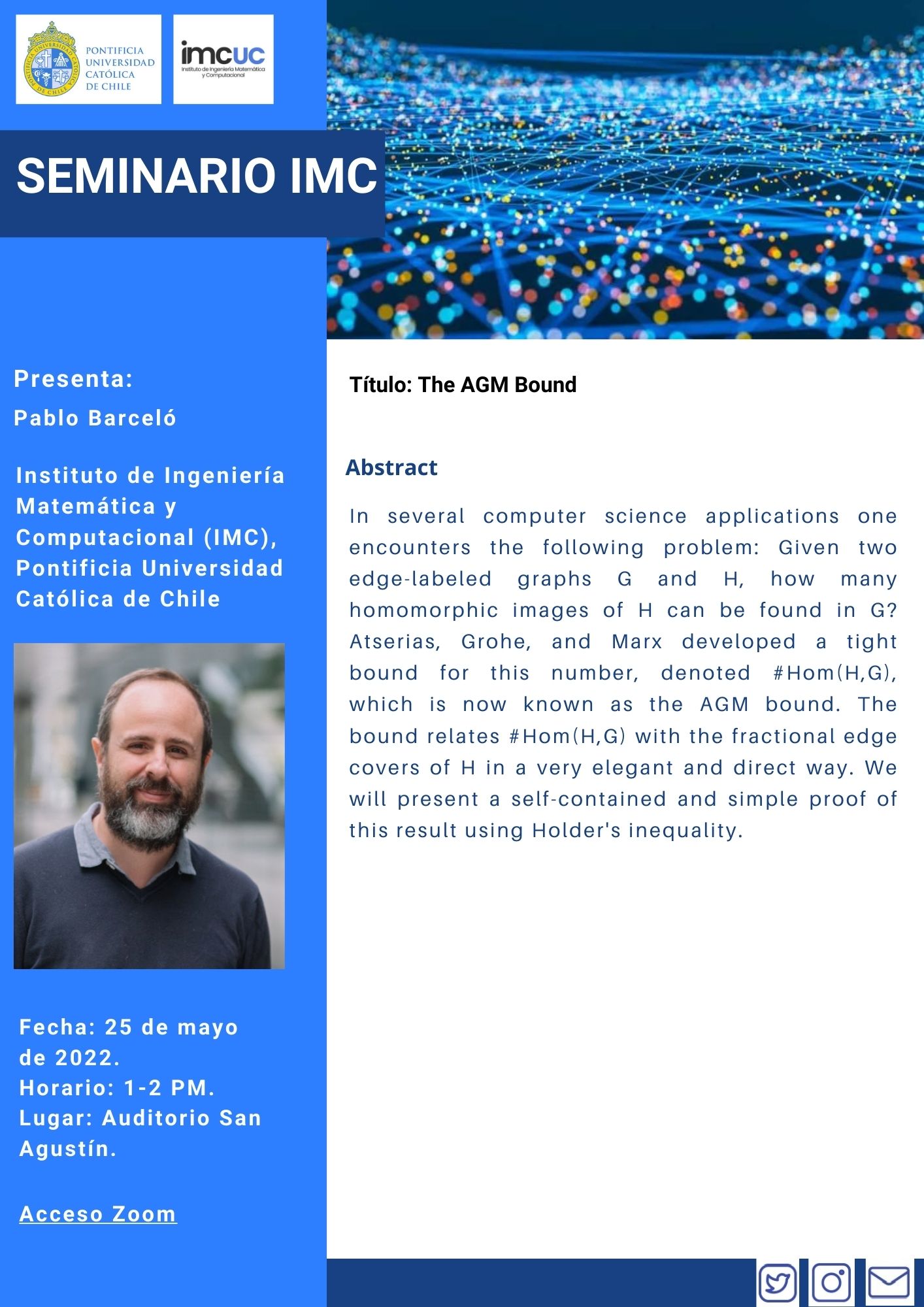El Instituto de Ingeniería Matemática y Computacional (IMC) los saluda atentamente y los invita al seminario que se dictará la próxima semana.
La charla se efectuará el miércoles 25 de mayo a las 13 horas, presencialmente en el auditorio del edificio San Agustín del Campus San Joaquín. Los que no puedan asistir en persona, también podrán tener acceso vía Zoom, mediante un enlace que se puede obtener escribiendo al correo Esta dirección de correo electrónico está siendo protegida contra los robots de spam. Necesita tener JavaScript habilitado para poder verlo..
La información sobre la charla la pueden encontrar en el poster adjunto y abajo.
Título: The AGM Bound
Expositor: Pablo Barceló
Afiliación: Instituto de Ingeniería Matemática y Computacional (IMC), Pontificia Universidad Católica de Chile
Fecha: 25 de mayo de 2022, 1:00 PM-2:00 PM
Lugar: Auditorio San Agustín; Zoom
Abstract:
In several computer science applications one encounters the following problem: Given two edge-labeled graphs G and H, how many homomorphic images of H can be found in G? Atserias, Grohe, and Marx developed a tight bound for this number, denoted #Hom(H,G), which is now known as the AGM bound. The bound relates #Hom(H,G) with the fractional edge covers of H in a very elegant and direct way. We will present a self-contained and simple proof of this result using Holder's inequality.
Bio:
Pablo Barceló is a full Professor at the Pontificia Universidad Católica de Chile, where he also acts as Director of the Institute for Mathematical and Computational Engineering. Previously, he served as Deputy Director of the Millennium Nucleus Center for Semantic Web Research, an initiative that gave origin to the Millennium Institute for Foundational Research on Data. He obtained his Ph.D. in Computer Science from the University of Toronto, Canada. He is the author of more than 70 technical papers, has chaired ICDT 2019, will be chairing ACM PODS 2022, and is currently a member of the editorial committee of Logical Methods in Computer Science. From 2011 to 2014 he was the editor of the database theory column of SIGMOD Record. His areas of interest are database theory, logic in computer science, and the emerging relationship between these areas and machine learning.

